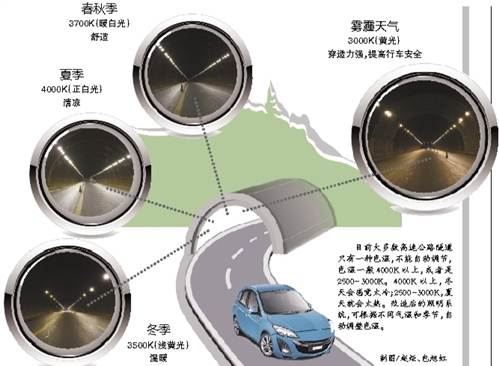time:2017-07-31 13:52:00 browse:4418次
Source: Chongqing Daily reporter: Yang Yongqin time: 2015-11-25

Recently often drove by Chongqing Fuling highway Tieshan Ping tunnel and Huashan tunnel driver found in the tunnel light yellow lights make people feel very warm, there is no illumination dark area, driving safety and comfort.
All this change, from September this year Chongqing economic construction (Group) Chongqing Green Technology Development Co., the implementation of energy-saving green lighting of Chongqing Fuling highway tunnel in Huashan, Tieshan ping. The company uses the energy contract management mode of a period of 10 years, without changing the original tunnel lighting control circuit and lamp installation position based on the implementation of a replacement of LED lights on the original 2879 tunnel lamp lamp, commonly known as the "chameleon" LED lamp, the lighting system has recently put into use. Internet plus remote intelligent control system of LED lamps and this is also the Chongqing Expressway Tunnel for the first time using color temperature, brightness adjustable anti haze.
In different temperatures and seasons, the lighting system can automatically adjust the color temperature according to the light outside the tunnel to improve ride comfort." Chongqing Green Development Co., Ltd. legal representative Su Chengyong introduced (specific circumstances, such as the right picture). This also reduces the accident rate in the tunnel, and also saves energy. The technology is jointly developed by Chongqing Green Development Co., Ltd. and Chongqing real estate Career Academy, with independent intellectual property rights, which fills the gap in the field of highway tunnel lighting in our country.
It is predicted that within 10 years, the total cost of the two tunnels will be about 5000000 yuan for the company, and the total electricity saving rate will be above 60%. As a result, the annual capacity of the two tunnels can be 1 million 119 thousand and 600 kwh, equivalent to 448 tons of standard coal per year, which can reduce carbon dioxide emissions by 1116 tons, 35 tons of sulfur dioxide and 18 tons of nitrogen oxides.